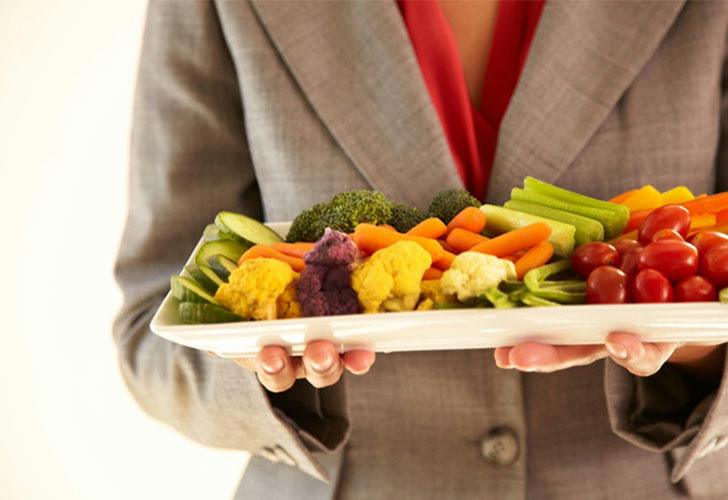What Should And Shouldn't Bladder Cancer Patients Eat?
Bladder cancer is a significant health concern that can impact various aspects of life, including diet and nutrition. While there is no specific diet that can cure bladder cancer, certain dietary choices can support overall health during treatment and recovery.

Understanding Bladder Cancer Treatment
The treatment of bladder cancer typically depends on the stage of the disease and may include:
1. Surgery: This can involve removing the tumor or, in more advanced cases, a radical cystectomy, which is the removal of the bladder and surrounding tissues.
2. Chemotherapy: This may be administered systemically (through the bloodstream) or intravesically (directly into the bladder). Chemotherapy drugs used include cisplatin, gemcitabine, and doxorubicin.
3. Radiation Therapy: Often used in combination with chemotherapy to target cancer cells.
4. Immunotherapy: Treatments such as nivolumab and pembrolizumab help the immune system fight cancer.
5. Targeted Therapy: Drugs like enfortumab vedotin target specific characteristics of cancer cells.
Recommended Foods for Bladder Cancer Patients
When managing bladder cancer, focusing on a nutrient-rich diet can help support health and recovery. Here are some recommended foods:
1. Fruits and Vegetables
Examples: Berries (blueberries, strawberries), citrus fruits (oranges, lemons), apples, pomegranates.
Benefits: High in antioxidants and vitamins; they may help reduce inflammation and provide essential nutrients.
2. Whole Grains
Examples: Brown rice, quinoa, whole wheat bread.
Benefits: High in fiber; they help regulate blood sugar levels and improve digestive health.
3. Healthy Fats
Examples: Olive oil, avocados, nuts (almonds, walnuts).
Benefits: Provide anti-inflammatory properties and support heart health.
4. Lean Proteins
Examples: Skinless poultry, fish (especially fatty fish like salmon), legumes (beans, lentils).
Benefits: Essential for tissue repair and maintaining muscle mass during treatment.
5. Dairy Alternatives
Examples: Almond milk or soy milk (preferably unsweetened).
Benefits: Lower in saturated fat compared to whole dairy products; they can also be fortified with calcium and vitamin D.
6. Herbs and Spices
Examples: Turmeric, ginger, garlic.
Benefits: Have anti-inflammatory properties that may help reduce cancer progression.
Foods to Avoid
To effectively manage bladder cancer, patients should avoid certain foods:
1. Processed Meats
Examples include bacon, sausages, and deli meats; these have been linked to an increased risk of various cancers.
2. High-Sugar Foods
Sweets and sugary beverages can lead to weight gain and increased inflammation.
3. High-Sodium Foods
Processed foods often contain excessive sodium which can lead to hypertension.
4. Alcohol
Should be limited or avoided as it may interfere with treatment effectiveness and overall health.
5. Caffeine
High caffeine intake may irritate the bladder; moderation is key.
Real-Life Dietary Case Examples
1. Case Study of a 55-Year-Old Male
A 55-year-old male diagnosed with bladder cancer underwent chemotherapy. After consulting with a dietitian, he adopted a Mediterranean-style diet rich in fruits, vegetables, whole grains, and healthy fats from olive oil and fish. He reported improved energy levels during treatment and better overall health markers during follow-up appointments.
2. Case Study of a 42-Year-Old Female
A 42-year-old female patient with early-stage bladder cancer focused on incorporating more plant-based foods into her diet while reducing her intake of processed meats and sugars. She included foods like quinoa salads with mixed vegetables and snacks of fresh fruit. After three months of dietary changes alongside her treatment regimen, she experienced fewer side effects from chemotherapy and maintained a healthy weight.
Recommended Products
1. Whole Grain Snacks
Healthy options like whole grain crackers or popcorn.
2. Plant-Based Protein Powders
For those needing additional protein without animal sources.
3. Herbal Teas
Consider teas that are low in caffeine for hydration.
4. Cookbooks Focused on Cancer Nutrition
For recipes tailored to those with bladder cancer.
5. Nutritional Supplements
If dietary intake is insufficient
Conclusion
While there is no specific diet that can cure bladder cancer, making informed dietary choices can significantly impact overall health during treatment. By focusing on nutrient-dense foods such as fruits, vegetables, whole grains, healthy fats, and lean proteins while avoiding processed foods high in sugar and sodium, individuals with bladder cancer can improve their quality of life.
Always consult with a healthcare provider or registered dietitian before making significant dietary changes or if you have specific concerns about your condition. By prioritizing these dietary strategies and considering appropriate supplements when necessary, individuals facing bladder cancer can take proactive steps toward better health management.
